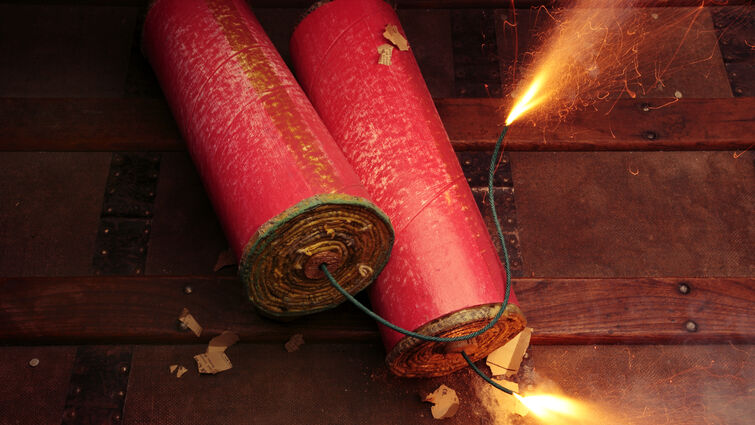

When a firework explodes in a child’s hand, the result can be catastrophic.
Don Moores, MD, chief of the Division of Pediatric Surgery and Pediatric Trauma Medical Director at Loma Linda University Children’s Hospital, has seen the consequences firsthand. Last Fourth of July alone, four children were admitted with injuries so severe they required amputations.
While burns are the most common fireworks-related injuries, the hospital also sees blast wounds, shrapnel-like punctures, eye trauma, and ruptured eardrums.
Moores and his team examined a decade of pediatric trauma cases at LLUCH, which found:
- Fireworks ranked as the second leading cause of traumatic amputations in children treated at the hospital.
- Among children ages 10 to 13, fireworks tied with ATV rollovers as the most common cause of amputation.
- Victims included children as young as five years old.
- A majority of the patients came from neighborhoods with low Childhood Opportunity Index scores, highlighting a link between severe injuries and communities with fewer resources, less supervision, and limited access to safe recreational options.
What parents should know
Moores’ top piece of advice, “Don’t let your kids handle fireworks. Period.”
Though backyard fireworks are widely considered a summer tradition, many are illegal in California cities like Redlands and Yucaipa where enforcement signs warn of steep fines.
“People think it’s harmless fun,” he said. “But if your kid wants to be a quarterback or a pianist, and they lose a hand, that future changes forever.”
Sparklers generally do not cause severe injuries, though they can sting and burn if misused. The more dangerous culprits are explosive fireworks with fast-burning fuses.
If an injury occurs
Parents should take the following steps before heading to the emergency department:
- For lacerations or bleeding: Apply pressure and cover the wound with a clean bandage.
- For burns: Use a moist covering or apply ointment like bacitracin and cover the area.
- For hearing issues or possible eardrum damage: Have the injury evaluated by a medical professional.
- For any suspected blast injury: Seek emergency care immediately.
Most cases are treated with pain relief and topical care. However, severe injuries may require emergency surgery.
A call to action
As families prepare to celebrate Independence Day, Moores hopes parents will reconsider private fireworks altogether and opt for professional shows instead.
“It’s just not worth the risk,” he said. “These injuries can define the rest of a child’s life.”
